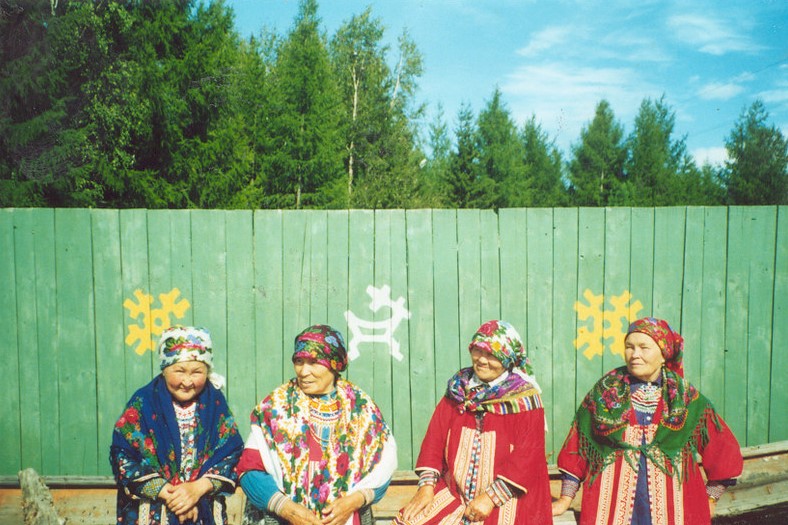Poverty and Culture Loss Among the Indigenous Peoples of Russia
 The world’s largest country by territory, Russia is remarkably diverse, multicultural and multilingual. The Russian government recognizes almost 200 ethnic minorities and close to 300 different languages. Groups with populations of 50,000 or less are classified as “small-in-number,” with 46 groups of Indigenous peoples identified as such as of 2020. These peoples inhabit territories of the Russian Federation in the Far North, beyond the Arctic Circle, along the Ural Mountains and across Siberia and the Far East. Now heavily outnumbered by the majority Russian population, they face population decline, adverse living and working conditions and cultural attrition. Thankfully, there are active initiatives working to stop poverty and culture loss among the Indigenous peoples of Russia and ensure equal protection of their rights.
The world’s largest country by territory, Russia is remarkably diverse, multicultural and multilingual. The Russian government recognizes almost 200 ethnic minorities and close to 300 different languages. Groups with populations of 50,000 or less are classified as “small-in-number,” with 46 groups of Indigenous peoples identified as such as of 2020. These peoples inhabit territories of the Russian Federation in the Far North, beyond the Arctic Circle, along the Ural Mountains and across Siberia and the Far East. Now heavily outnumbered by the majority Russian population, they face population decline, adverse living and working conditions and cultural attrition. Thankfully, there are active initiatives working to stop poverty and culture loss among the Indigenous peoples of Russia and ensure equal protection of their rights.
Indigenous Peoples Face Headwinds
In general, living standards for the country’s small nationalities are lower than for ethnic Russians. As they often preserve traditional ways of life and occupy remote, isolated areas, some basic services, such as education, are lacking or of a lesser quality. Furthermore, Indigenous populations suffer from higher unemployment rates and lower incomes, with the former being almost two times higher than among the general population and the latter being two to three times lower. Unfortunately, the country’s Indigenous peoples also lack access to safe drinking water, food, medical care and other vital necessities, leading to higher disease and infection rates and shorter lifespans. For instance, Indigenous men and women in Russia have respective life expectancies of 50 years and 60 years, which are significantly lower than the life expectancies (64 years for men and 70 years for women) of the general Russian population.
While Russian legislation formally guarantees Indigenous populations’ rights to language protection, education and water and land use, Indigenous rights are rarely protected or enforced. Indigenous land is regularly exploited for industrial and other purposes, depriving Indigenous peoples of the land and natural resources that they rely upon for physical, financial and cultural sustenance.
Factors Contributing To Indigenous Poverty and Culture Loss in Russia
Racism has been a driving force behind poverty and culture loss among the Indigenous peoples of Russia. The country’s non-Russian populations often face harsh racial profiling, mistreatment by law enforcement, employment discrimination and hate crimes. The war in Ukraine has exacerbated the situation, with the proportion of Indigenous soldiers mobilized in the war reportedly far outweighing that of ethnic Russians.
In light of growing economic and societal challenges, Indigenous people are increasingly abandoning their languages and cultural heritage in hopes of assimilating with the majority population and increasing their chances of survival. Consequently, many of the country’s Indigenous peoples and languages are going extinct, along with their unique histories, knowledge and lifestyles. As of 2014, 148 Indigenous languages and at least 16 of the 41 legally recognized Indigenous groups in Russia were “considered to be endangered.”
Local Government and Native Councils May Hold the Key to a Better Future
There has, however, been progress toward rectifying the situation in recent decades. In 1996, the Khanty-Mansi Autonomous Okrug established a regional council of Indigenous peoples, and the local legislature designated three of its 21 seats for Indigenous representatives. Additionally, the Russian Association of Indigenous Peoples of the North (RAIPON), an umbrella organization founded in 1990, is working “to protect human rights and defend the interests of the indigenous small-numbered peoples of the North, Siberia and Far East of the Russian Federation.” Representing 40 Indigenous peoples, RAIPON is a member of the Arctic Council and collaborates with several U.N. partners to organize, advocate and raise funding for projects supporting Indigenous interests in Russia. Furthermore, the Arctic Council utilizes a “language revitalization” initiative aimed at studying, recording, digitizing and sustaining Indigenous languages that are at risk of extinction.
Looking Ahead
Despite the threats of poverty and cultural loss, Indigenous civil society groups and international efforts are making a difference in the struggle to maintain Indigenous populations in Russia. Nonetheless, future success in combating poverty and culture loss among the Indigenous peoples of Russia looks to hinge upon increased funding and support for Indigenous education, language, land and rights protections and cultural preservation work. Such levels of support could help ensure that the Indigenous peoples of Russia, and their values and heritage, continue to thrive.
– Paul Phelan
Photo: Flickr
